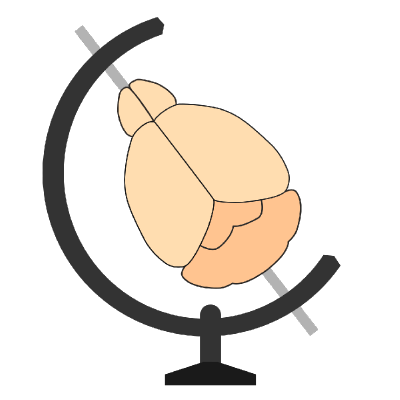Posts in BrainGlobe-v1
BrainGlobe version 1 is here!
- 08 January 2024
Following our series of incremental updates to a number of BrainGlobe tools, we are pleased to announce that BrainGlobe version 1 has been released today! Users can now enjoy:
cellfinder-core and cellfinder-napari have merged
- 02 January 2024
BrainGlobe version 1 is almost ready, and the next stage of its release journey is the merging of the “backend” cellfinder-core and cellfinder-napari packages into one.
We had previously migrated the cellfinder data analysis workflow into the new brainglobe-workflows package, as part of our efforts to separate “backend” BrainGlobe tools from common analysis pipelines.
This means that there is no longer any need to keep the “backend” package (cellfinder-core) and nor the visualisation plugin (cellfinder-napari) stored in separate, lower-level packages.
As such;
cellfinder has moved: version 1 of brainglobe-workflows released
- 01 November 2023
Continuing the restructuring of BrainGlobe, the cellfinder command-line tool has moved to a new home, brainglobe-workflows.
Please note that we will no longer be providing Docker images for cellfinder’s command-line functionality either - if you were previously using the Docker image, please see the advice in the full changelog.
Version 1 of brainreg and brainglobe-segmentation released
- 01 November 2023
The restructuring of BrainGlobe is underway, beginning with the release of version 1 of brainreg and brainglobe-segmentation (previously known as brainreg-segment).
Previously, there were three tools with the prefix brainreg (“brain registration”) that were split across three packages:
BrainGlobe is being restructured, version 1 is on it’s way!
- 30 October 2023
BrainGlobe provides and maintains a number of open-source tools, each of which are provided as Python-based software packages. A number of these tools also come with a graphical user-interface provided by a napari plugin that can be installed on top of the Python package. Whilst there is an advantage to the modularity provided by maintaining separate tools, the same modularity can present challenges and unnecessary difficulties when running an analysis that relies on multiple BrainGlobe tools. Particular pinch points include:
